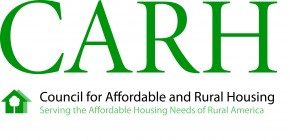- November 2022
- October 2022
- September 2022
- August 2022
- July 2022
- June 2022
- May 2022
- April 2022
- March 2022
- February 2022
- January 2022
- December 2021
- November 2021
- October 2021
- September 2021
- August 2021
- July 2021
- June 2021
- May 2021
- April 2021
- March 2021
- February 2021
- January 2021
- December 2020
- November 2020
- October 2020
- September 2020
- August 2020
- July 2020
- June 2020
- May 2020
- April 2020
- March 2020
- February 2020
- January 2020
- December 2019
- November 2019
- October 2019
- September 2019
- August 2019
- July 2019
- June 2019
- May 2019
- April 2019
- March 2019
- February 2019
- January 2019
- December 2018
- November 2018
- October 2018
- September 2018
- August 2018
- July 2018
- June 2018
- May 2018
- April 2018
- March 2018
- February 2018
- January 2018
- December 2017
- November 2017
- October 2017
- September 2017
- August 2017
- July 2017
- June 2017
- May 2017
- April 2017
- March 2017
- February 2017
- January 2017
- December 2016
- November 2016
- October 2016
- September 2016
- August 2016
- July 2016
- June 2016
- May 2016
- April 2016
- March 2016
- February 2016
- January 2016
- December 2015
- November 2015
- October 2015
- September 2015
- August 2015
- July 2015
- June 2015
- May 2015
- April 2015
- March 2015
- February 2015
- January 2015
- December 2014
- November 2014
- October 2014
- September 2014
- August 2014
- July 2014
- June 2014
- May 2014
- April 2014
- March 2014
- February 2014
- January 2014
Senate Agrees to House Paycheck Protection Program Improvements
CARH Broadcast Email—Legislative Update
On June 3, the Senate, by unanimous consent, cleared H.R. 7010, the Paycheck Protection Program Flexibility Act of 2020, to extend the Small Business Administration’s Paycheck Protection Program (PPP).
The bill modifies provisions related to the forgiveness of loans made to small businesses under the (PPP) implemented in response to COVID-19. Specifics include:
- Extending the current eight-week period during which businesses must use funds to have loans forgiven to 24 weeks or December 31, 2020, whichever comes sooner.
- Establishing a minimum maturity of five years for a paycheck protection loan with a remaining balance after forgiveness. The bill also extends the covered period during which a loan recipient may use such funds for certain expenses while remaining eligible for forgiveness. The bill raises the non-payroll portion of a forgivable covered loan amount from the current 25% up to 40%.
- Extending the period in which an employer may rehire or eliminate a reduction in employment, salary, or wages that would otherwise reduce the forgivable amount of a paycheck protection loan. However, the forgivable amount must be determined without regard to a reduction in the number of employees if the recipient is (1) unable to rehire former employees and is unable to hire similarly qualified employees, or (2) unable to return to the same level of business activity due to compliance with federal requirements or guidance related to COVID-19.
- Revising the deferral period for paycheck protection loans, allowing recipients to defer payments until they receive compensation for forgiven amounts.
- Allowing recipients who do not apply for forgiveness to have ten months from the program’s expiration to begin making payments.
- Eliminating the prohibition on deferment of payroll taxes under CARES Act §2302 for borrowers who receive loan forgiveness, meaning borrowers can now receive forgiveness and continue to defer 50% of their portion of the FICA tax until December 21, 2021, and the remaining 50% until December 31, 2022.
The House of Representatives passed the bill May 28, by a vote of 417-1. President Trump is expected to sign the legislation before the end of the week. The bill includes no new funding for the PPP program, which, as of the latest reports, still has nearly $100 billion left for distribution.
If you have not yet registered for CARH’s Virtual Annual Meeting & Legislative Conference scheduled for June 22-23, click here the for the Agenda and Registration form. You will not want to miss the discussions regarding this and many other relevant topics.





